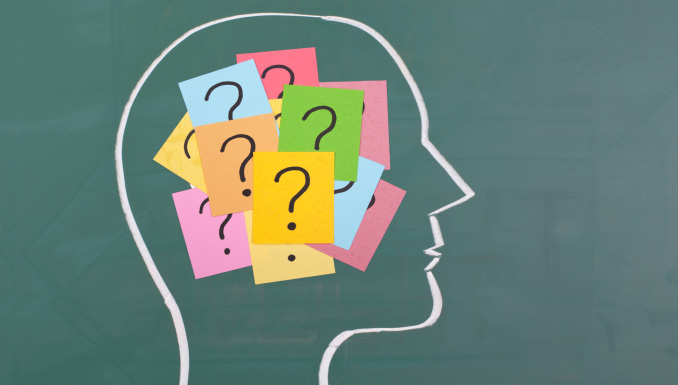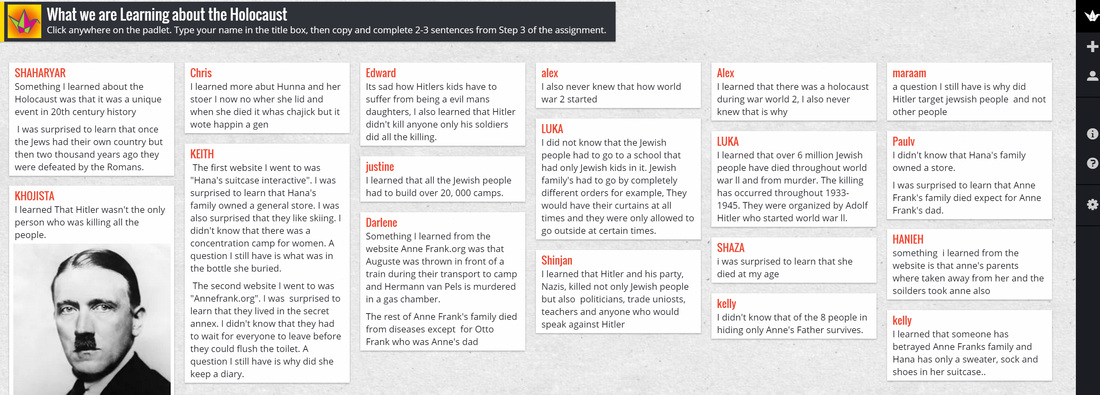In this case, the student-generated question/subject of interest was what happened to the Jews during World War II?
Fortuitously, the following weekend, my partner and kids (who are also in Grade 6) and I happened to have tickets to see Hana's Suitcase at the YPT, and -- in a marvelous act of serendipity -- George Brady came to the show and took the stage for a few minutes afterwards to speak with the many children in attendance.
I was inspired!
The rest of the weekend was a flurry of preparation, as I posted the following text online in our Edmodo classroom, and invited students to join me on a journey of research to discover more about this troubling time in European and world history:
| Dear 606, Recently, some of you asked about WWII and the Holocaust. Ms. Teschow and Ms K took Alex and Simon to see "Hana's Suitcase" last weekend. It is a play about two Japanese children and a woman who works at the Holocaust Education Centre in Tokyo, and their journey to find out more about Hana, a war orphan whose suitcase they have in their Holocaust collection. Seeing the play reminded me of your questions about Hitler and the Jews. Some of the things that happened during World War II are very difficult to understand, and can make many people very sad, confused or even angry. But finding out about these things and trying to understand them is important, so that we can learn from our mistakes in the past, and work towards a more peaceful future, no matter where and when we live. Canada is a place that values peace. As Canadians, it is our responsibility to inform ourselves about the past, so that we can learn how to be more respectful of differences in the future. This will help us to work towards peace not only in Canada, but all over the world. I have created some Padlets, so that we can share our learning and ideas. You will have several periods in the lab with Ms. J-- to work on this. Please see the attached assignment for more information about what to do. I am looking forward to reading your responses. Sincerely, Ms. T. |
The first step of the assignment was for students to reach into their schema and make note of what they thought they already knew about the Holocaust. They recorded their notes here on this padlet.
As students continued the learning journey, I and other teachers involved (for example, the computer lab teacher), checked in with students online and in person to monitor misconceptions as well as mental and emotional health; the commonly held belief is that "at some point, it is best that children be told the truth". However, that doesn't mean they don't need support in coming to terms with that truth. Throughout the assignment, students were invited to monitor and share their feelings, which ranged from "intrigued and curious" to "sorrowful, sad and scared".
As the class visited various online resources, they were invited to share their emerging understanding on another class padlet like the one below:
It is often said that the Holocaust during World War II was not the only ethnic cleansing that took place in the world, and that it is unfair to the many other people groups who have suffered at the hands of tyrants to focus only on the Jewish story.
My feeling is that in order to begin to unpack other acts of atrocity in the world, and ensure they they don't happen in the future, students need to find a common starting point to learn about humanity's difficult history lessons. The Jewish Holocaust is a well-researched time in history with many accessible, child-appropriate resources. Learning about this aspect of World War II is an important foundational building block for students to learn about other important parts of world history so that they can more consciously direct its future.
I'm pleased that my students asked -- and that I was able to provide some guidance in learning in learning -- about this important albeit difficult topic.




 RSS Feed
RSS Feed